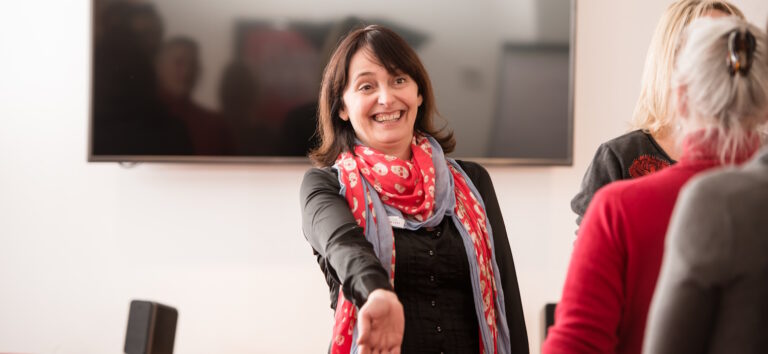
Assertive Behaviour
Gentle assertiveness is founded on tolerance and respect for others.
Assertive Behaviour
Gentle assertive behaviour is based on self-confidence and respect for others.
Views and thoughts are formed by genes and by how the brain has been modelled by experience.
The brain is full of prejudices of thought and cognitive reflexes.
This knowledge of how our views are formed should help you be more gentle and tolerant while expecting others to respect your views.
Gentle Assertiveness
Gentle assertiveness is founded on tolerance and respect for others.
It entails the need for envisaging the possibility that others may have good reasons to see things differently.
Truly assertive people are creative and accommodating, while aggressive people transgress the rights of others.
Gentle assertive people assert their opinion, but they also recognise the importance of carefully listening to others.
But is assertiveness the only way?
Assertive People
When confronted with assertive behaviour such as someone who just says no to a reasonable request, it is important to remember that there are good reasons not to be subdued and to let others push you over.
These reasons can be summed up by ‘you have your views, I have mine’.
In any event, assertive behaviour denies others the monopoly of holding the truth without questioning, while permitting the free expression of your opinion with tolerance and constructive dialogue.
Mapping the Mind
In her acclaimed book, entitled Mapping the Mind, Rita Carter draws on the latest in brain imaging to give extraordinary insights into how the brain works.
I vividly remember a shocking point made by the author who asserts that reality is a construction of our mind.
She says
“There is no definitive picture of out there, only a construction in our heads triggered by the external elements we are best equipped to register.”
So, an individual’s perceptions, views and thoughts are formed by their genes and by how their brain has been modelled by experience.
Recognition Systems
People have elaborate recognition systems to identify, imagine and name things.
Our relationships with things, even quite simple things, are multifaceted and subjective.
Each facet of a memory of a thing may be stored in a separate, appropriate area of the brain.
Unique Construction of Your Own
Recognition of that thing rolls off the end of a long and complex assembly line.
So, what you have in mind is not a faithful reflection of the outside world, but rather a unique construction of your own mind.
In other words, your conscious imagining of a thing is probably different from my own view of that same thing.
Thoughts Concepts and Ideas
Concepts, ideas and thoughts have different meanings for different people.
Hence, some humility is in order in accepting differences of views. In turn, you have the right to expect others to recognise the legitimacy of varying views.
In general, such a state of mind is conducive to assertive behaviour, as you find it natural to have your own views.
The Illusion of Thought
The illusions of thought and prejudices that pollute our unconsciousness are yet another reason why you should expect others to respect your right to have your own views.
Our brains hold pre-programmed theories about the world.
They are to some extent hard-wired into our brains.
They have been engraved in our brains because they had served some useful purpose.
Prejudices
So, these prejudices help us deal quickly and practically with complex challenges.
If you throw a dice six times, the probability that you get six times the same face is the same as any other combination of faces.
Yet, you choose ‘six times one’ for your bet? I really doubt it!
These prejudices are like sensory illusions, like a knee jerk.
Our essential prejudices are created by the layout of our brain, the bulk of it laid down during our lifetime, bearing the fingerprints of our own experience.
You ought to keep in mind that the views of the other person reflect, to a large extent, their past.
An assertive person is usually conscious of this relationship between his own views and their own heritage.
Listen to – David Mitchel Talking to Jo Ellen Grzyb about Assertiveness
Find the – Benefits of Being Assertive
Read – Assertive Communication 5 Tips For Effective Use
Assertive Behaviour
We also offer One and Two-day Assertiveness Skills Courses – designed to help people recognise the patterns of thought and behaviour they have acquired that leave them feeling disempowered.
Impact also Factory runs
Tailored Assertiveness Training
and personalised
One-to-One Assertiveness Skills Training
for anyone who is interested in







